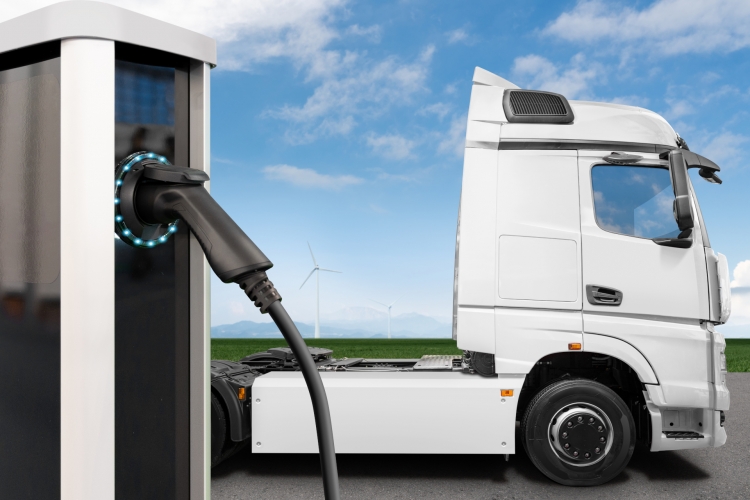Different Charging Costs for Electric Trucks Across European Countries
- Oprac. M.K.
- Kategoria: English zone
SNAP, a company specializing in digital solutions for international mobility, conducted a study on the scale of savings among European fleet operators. The analysis compared the costs per 100 km of powering trucks with electricity versus traditional fuel.
Icelanders save up to PLN 260.66 (€61), while Croatians save just under PLN 85.46 (€20). These figures illustrate the significant disparities between countries in terms of savings from using electric trucks. In this ranking, Iceland performed best, with savings of PLN 260.79 (€61.03) per 100 km, while Croatia recorded the lowest savings – PLN 85.29 (€19.96). Poland ranked 30th, with savings of PLN 103.49 (€24.22) per 100 km.
Currently, there are about 10,000 charging stations available across Europe for small and large trucks. According to estimates by McKinsey & Company, in order to meet the mobility needs by 2030, this number will have to increase to over 300,000 stations (both public and private). Transitioning to electric trucks comes with many challenges. To facilitate this process for fleet operators and drivers, further investments and research will be needed.
Top 10 Countries in Europe with the Greatest Savings
Savings (in PLN) when powering trucks with electricity compared to diesel per 100 km
- Iceland – 260.79 (€61.03)
- Norway – 210.71 (€49.31)
- Finland – 209.89 (€49.12)
- Albania – 203.61 (€47.65)
- Denmark – 189.00 (€44.23)
- Sweden – 180.49 (€42.24)
- Serbia – 177.76 (€41.60)
- Netherlands – 177.76 (€41.58)
- Portugal – 174.81 (€40.91)
- Belgium – 166.01 (€38.85)
Top 10 Countries in Europe with the Lowest Savings
Savings (in PLN) when powering trucks with electricity compared to diesel per 100 km
- Croatia – 85.29 (€19.96)
- Cyprus – 90.42 (€21.16)
- Moldova – 97.08 (€22.72)
- Czech Republic – 100.46 (€23.51)
- Georgia – 103.45 (€24.21)
- Poland – 103.59 (€24.22)
- Hungary – 110.12 (€25.77)
- Luxembourg – 112.25 (€26.27)
- Malta – 117.04 (€27.39)
- Bulgaria – 119.95 (€28.07)
A Zero-Emission Future
Between 2005 and 2023, greenhouse gas emissions in Poland fell by 9.3% – well below the EU average of 30.5%.
Undoubtedly, electric trucks, along with the use of fuel and biofuel, are key to Poland’s path toward meeting climate goals. However, to create a reliable and accessible charging network across Europe, investments will also be needed in battery production technology, MSC (megawatt charging system), and the performance of eHGVs (electric heavy goods vehicles).
The broader this network becomes, the fewer concerns drivers will have about charging, and the more willing they will be to adopt electric trucks. To make this transition easier, fleet managers can organize training sessions for drivers on planning charging stops and learning charging procedures.
Our research has shown that the differences in savings related to charging eHGVs across Europe reach as much as 54%. In our industry, we constantly take initiatives to meet climate goals. But we must not lose sight of fleet operators and drivers – they need support to gain confidence and to have a ready infrastructure that allows them to use electric vehicles seamlessly. Ultimately, this will deliver measurable savings in every market. We want leaders in our industry to help fleet operators and drivers cope with the challenges of introducing electric trucks into fleets. These challenges include the limited and unreliable charging network, as well as high initial investment costs. Every industry must contribute to achieving Europe’s climate goals. We believe it is our responsibility to make this transition easier for fleet operators and drivers. While we are pleased with the savings from using eHGVs, we know that fuel will still remain an important energy source. However, we assume that biofuel will be one of the factors contributing to reaching these goals – commented Nick Renton, Head of European Strategy & Business Development at SNAP.
The full study conducted by SNAP is available at:
https://snapacc.com/pl/newsroom/fuel-vs-charge-is-the-switch-to-electric-cheaper-or-just-greener/



